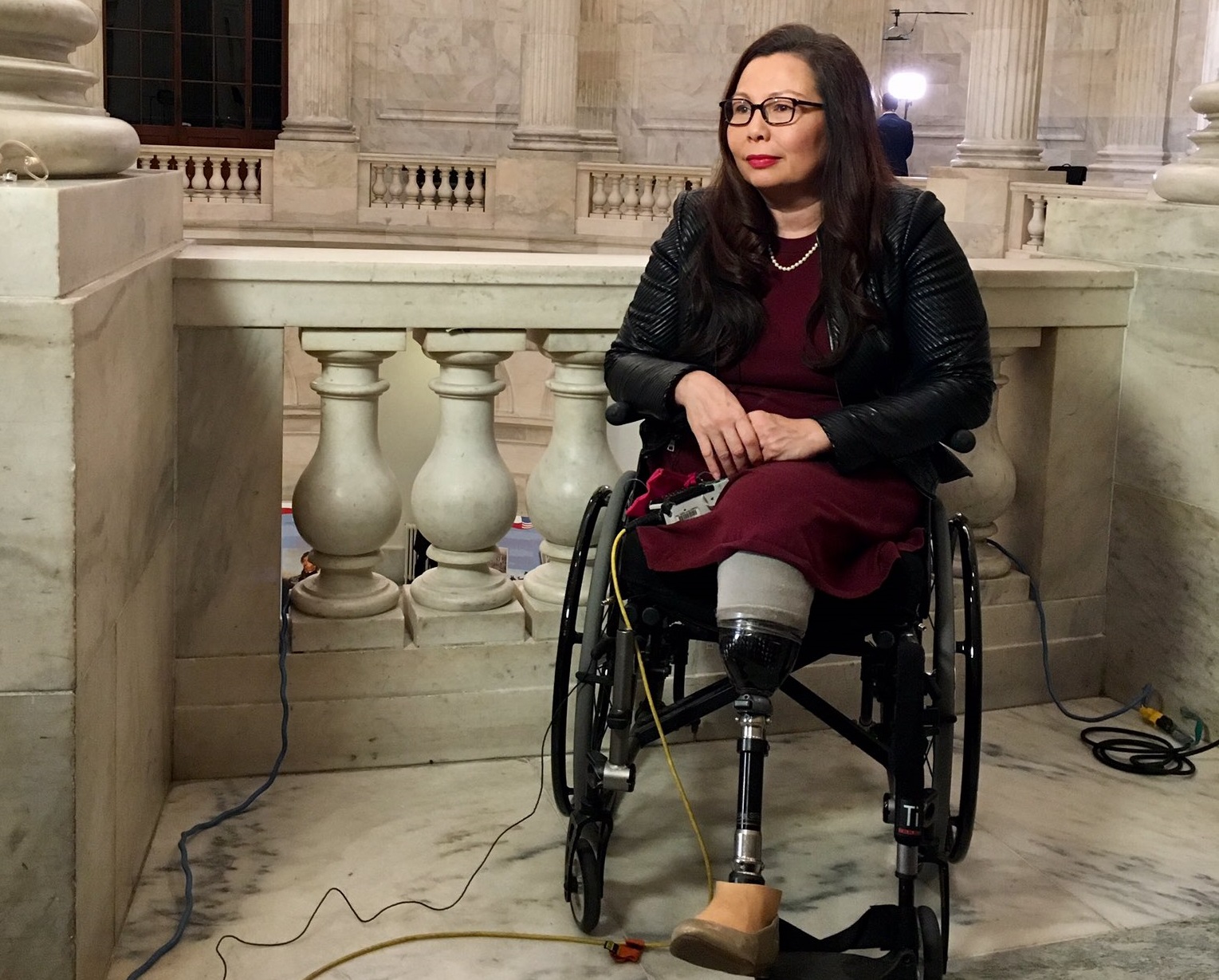How many disabled legislators serving in elected office can you name off the top…
Lead On: Leadership & Women With Disabilities in Government

Image: Senator Tammy Duckworth (D-IL)
Throughout history the voices of people with disabilities have been suppressed, hidden away from society in segregated institutions, schools, and workshops. To this day we continue to see vestiges of this as the disability community advocates for policy that will allow people to choose where they live (Olmstead Decision), to have equal access and opportunity in education and employment (IDEA, Rehab Act, ADA), and to no longer be paid sub-minimum wages.
Men with disabilities have risen to powerful positions in government, including former Presidents. However, only recently have women with disabilities acquired seats at the table and voices in the policymaking process. In fact, despite recent gains, women remain under-represented in government. The result is when policy decisions are being made, they are often made without representation from people that will be affected most. For example, faced with the current COVID-19 pandemic policymakers are scrambling to create a stimulus package but, according to the Center for American Progress, the initial Bill failed to take into consideration the needs of women and the disability community, who will be disproportionately impacted during this crisis. Follow this discussion at #SeeUsSchumer and #CripTheVote.
Disability is often overlooked in policy discussions unless someone with a disability is at the table. For example, Senator Tammy Duckworth (D-IL), a veteran and double-amputee, used her position to pass legislation requiring airlines to report the number of broken wheelchairs. Wheelchairs are critical assistive devices that facilitate independence, work, and travel. Yet, many people with disabilities have been stranded with a broken wheelchair and received little response from airlines about repair, replacement, or compensation. The first report found an average of 25 wheelchairs are broken a day!
As researchers with the Lead On Project at UIC, we study how women with disabilities like Tammy Duckworth, shape policies and programs at all levels of government. We are asking questions like:
- How do they get a set at the table?
- How do they influence the agenda?
- How do they make their voices heard?
We intend to make these women’s voices central as we develop reports and resources from the research this coming summer.
In fact, “nothing about us, without us” is a mantra that has been instrumental for the disability rights movement. It has been central to the UN Convention on the Rights of Persons with Disabilities (UNCRPD) as well as the inclusion of disability in the Sustainable Development Goals:
During the current U.S. Democratic Presidential Primary, most nominees created disability policy platforms, many which were developed with leaders from the disability community. Our research shows that women with disabilities have been at the forefront of this and other efforts to create more inclusive policies and communities. We look forward to sharing resources and materials developed from these findings to help inform policy and benefit the broader community.






